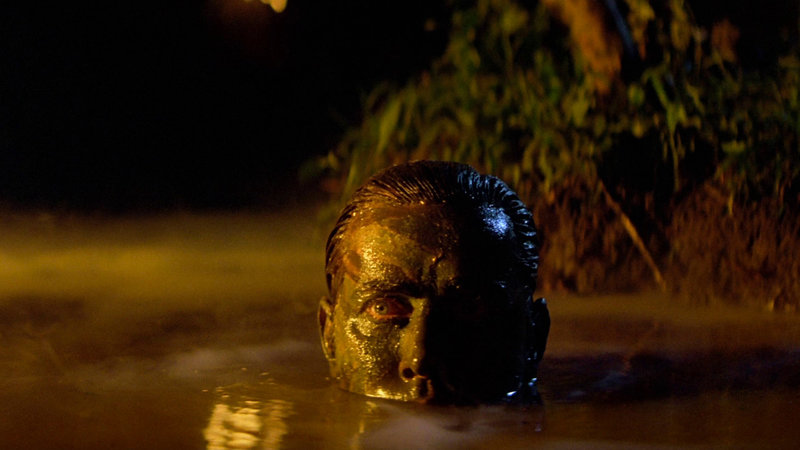
Screened as part of NZIFF 2002
Apocalypse Now Redux 2000
"As we follow Martin Sheen’s Captain Willard on his voyage upriver to exterminate the renegade Colonel Kurtz (Marlon Brando), one breathtaking, brilliantly executed sequence follows another; beautiful and grotesque, this is operatic, visionary filmmaking at full throttle. Time has been good to Coppola’s movie. The new Apocalypse Now Redux is 53 minutes longer; watching it in the same theater where I first saw it (the huge screen at the Ziegfeld in New York) was an exhilarating experience.
The biggest new addition is an almost 20-minute sequence in which Willard stumbles into a dreamlike French-colonial plantation, where a formal dinner is served, the politics of Indochina are debated and he spends an opium-laced night in the bed of a beautiful widow (Aurore Clement). It’s easy to see why the sequence was cut – it’s often stilted; it doesn’t advance the ‘plot’ – yet this ghostly diversion broadens the movie’s perspective, reinforces its theme of the duality of man and adds new colors to its emotional palette. As does the comic-nightmarish sequence in which two Playboy bunnies (Colleen Camp and Cynthia Wood), their helicopter stranded in a muddy medical-evacuation port, trade sexual favors for fuel. There are smaller, subtler changes that strengthen the movie: Coppola and editor Walter Murch have not only expanded the role of Robert Duvall’s surf-crazed Colonel Kilgore but rearranged the placement of the surfing scenes, deepening their insane incongruity.
The new material only emphasizes how far from realism Coppola has traveled, how metaphorical and surreal his take on Vietnam was. Where are the Vietnamese in this Vietnam War movie? Only in the shocking massacre of the peasants on the sampan – in many ways the movie’s emotional climax – are any Vietnamese characters brought to the foreground. Apocalypse was and is a hallucinatory vision of American hallucinations of power. In the twisted bravado of Kilgore and Kurtz’s plunge into megalomania and butchery we are meant to see the repercussions of a government policy run murderously amok…
Apocalypse Now in any form will never be a seamless work of art, but its flaws of hubris now seem not just forgivable but part of its ragged glory. Does it strive too hard for greatness? Sure. But it’s not likely that you’ll see another movie this year with so much heart-stopping, gut-churning greatness in it." — David Ansen, Newsweek